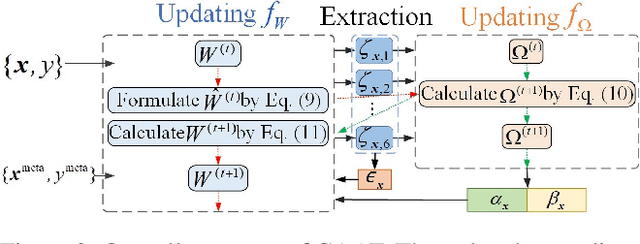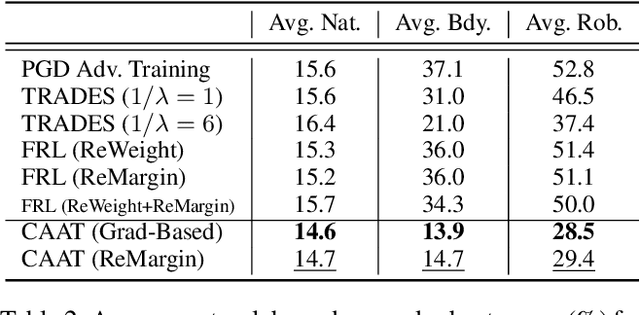Combining Adversaries with Anti-adversaries in Training
Paper and Code
Apr 25, 2023



Adversarial training is an effective learning technique to improve the robustness of deep neural networks. In this study, the influence of adversarial training on deep learning models in terms of fairness, robustness, and generalization is theoretically investigated under more general perturbation scope that different samples can have different perturbation directions (the adversarial and anti-adversarial directions) and varied perturbation bounds. Our theoretical explorations suggest that the combination of adversaries and anti-adversaries (samples with anti-adversarial perturbations) in training can be more effective in achieving better fairness between classes and a better tradeoff between robustness and generalization in some typical learning scenarios (e.g., noisy label learning and imbalance learning) compared with standard adversarial training. On the basis of our theoretical findings, a more general learning objective that combines adversaries and anti-adversaries with varied bounds on each training sample is presented. Meta learning is utilized to optimize the combination weights. Experiments on benchmark datasets under different learning scenarios verify our theoretical findings and the effectiveness of the proposed methodology.
 Add to Chrome
Add to Chrome Add to Firefox
Add to Firefox Add to Edge
Add to Edge